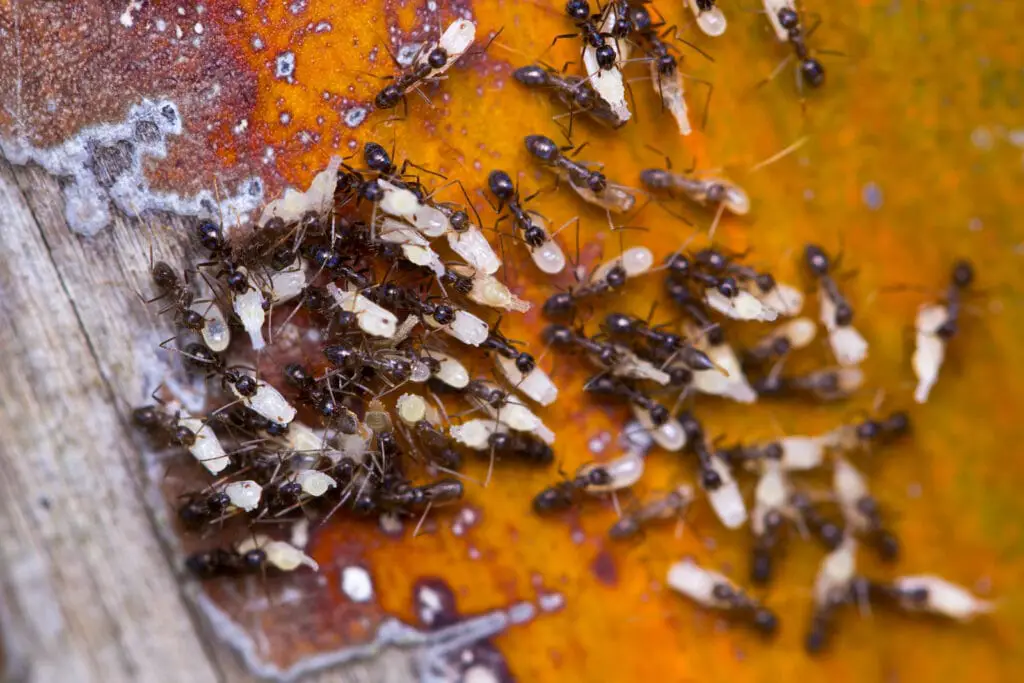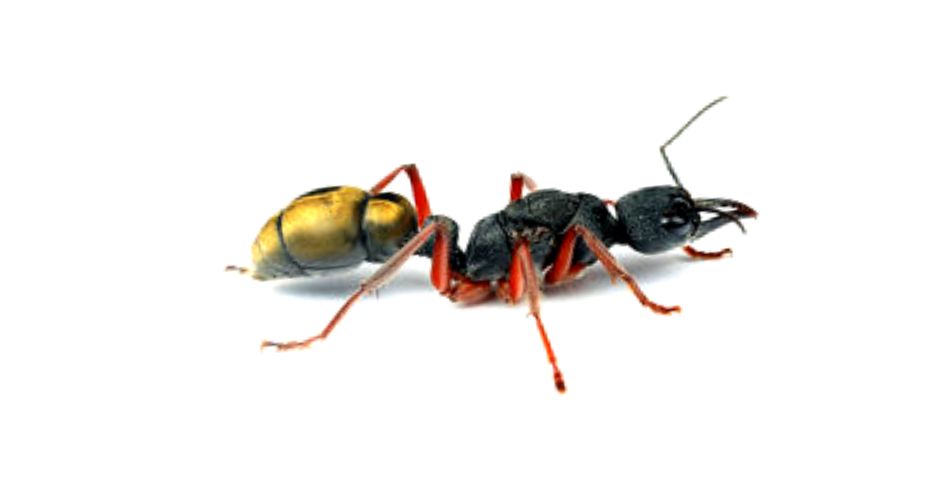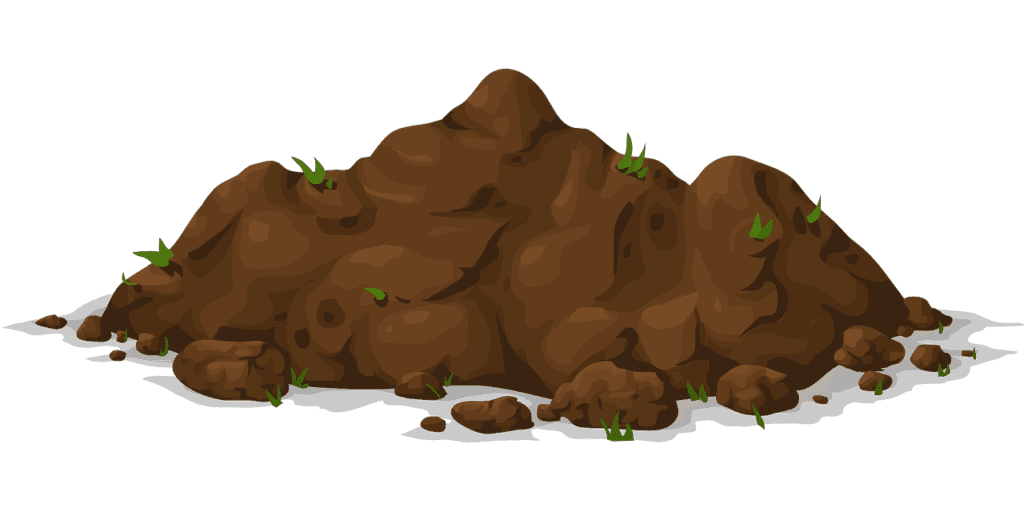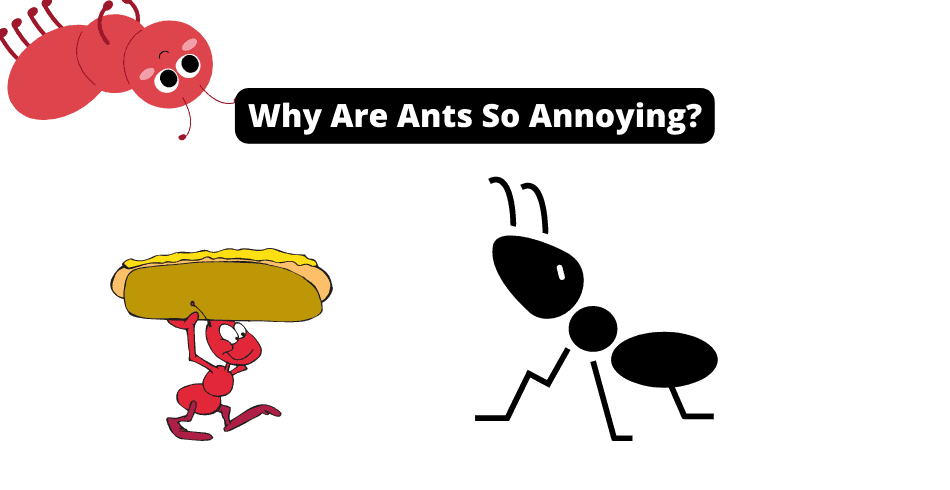Yes, Ants Are Annoying…
However, they are a necessary menace.
They’re beneficial in many ways, and in many others, they’re annoying pests.
No matter what preventive measures or tricks you take to keep them away, these little critters seem to find a way to show up uninvited to the party.
Ants seem to have been born with a way of getting around any human prevention actions.
I’m sure if you had the opportunity, you’d eliminate all the ants in the world.
Not so fast!
After reading this piece, you might stop seeing ants as annoying but enviable.

Why they’re… so annoying.
What makes these tiny, barely visible creatures so resilient and nearly impossible to exterminate completely?
An unbelievably large population
The most recent etymological statistics estimate the ant population about a quadrillion.
An easier way of saying that figure is there are about a million billion ants in the universe.
That’s a lot of ants, and even though there are 15,000 species identified, classified, and named – you’ll probably only run into the same 5 species over and over.
You will find ants anywhere on earth, on every continent except Antarctica, because of the extreme cold.
Excellent food gathers
To feed such a massive number of creatures, you need a lot of food.
The number one reason you have an ant infestation in your house is they’re foraging for food around your home.
They return this food to their nestmates, the queen, and the larvae.
These tiny creatures steal your food to feed their family!

Like humans who prefer an easier way to make a dime rather than sweat and toil, ants will go for the most accessible food source closest to their habitat or nest.
Pretty smart if you ask me!
For this reason, it just so happens that your kitchen and trash bins are the closest opportunity.
Many ants will look for food, water, sweet foodstuffs, sugars, or fats in these locations to return to the nest.
An advanced sense of smell
Nature and evolution were very kind to ants.
They’re endowed with one of the finest and most accurate senses of smell.
Before your neighbor can pick up the sweet smell of your cooking delicacies, ants will have sensed it much earlier, and the workers will be on their way uninvited to share it with you.
They’re not picky eaters.
Any food goes, and they will invade even pet food.
Social behavior
These creatures are very organized and clever.
They first send scout ants to find food.
Once the scouts find the hidden goods, they return food to their nest and leave scent trails for nestmates.
They recruit other worker ants at the nest to get the colony’s food quickly.
In no time, you find yourself fighting a swarm of ants in the house.

Excellent workers
Who doesn’t love a great house constructed in a scenic, safe location?
Ants are no different.
Ants nest in great places, close to food and water, away from sunshine, floods, and rivals.
Some ants in your house nest in the house because the indoor conditions offer all these wonderful benefits.
Your home is like a fully paid ensuite vacation.
The pavement slabs, the patios, and the house foundations are conducive nesting sites.
Unfortunately, as they instinctively secure their living habitats, they cause structural damage.
For some ant species, once they make their nests or during their migration or food-hunting escapades, they will not only invade your food but will bite and sting if you get in their way!
Which ant species are a common nuisance?
Identifying the species of ants you are dealing with in pest control is essential.
Here are some common household ants that are hard to get rid of;
- Carpenter ants – this is one species that are very hard to control. They will invade the kitchen for sugary food and also attacks wooden structures.
- Fire ants – these are very aggressive and highly invasive. They form colonies in the lawns. They attack and bite if disturbed and seriously threaten outdoor family activities.
- The crazy ant
- The black garden ant
What can you do to get rid of ants if you dislike them?
Some people are mesmerized by ants and even keep them for pets.
But, if you hate ants or just want to get rid of them, you can do a few things to get rid of ants.
Here are some prevention tips:
- Ants visit the house to find food and water. Ensure there are no food crumbs or leftovers found around the house
- Keep the floors swept.
- Take out the garbage.
- Keep foods or leftovers in sealed containers.
- Ants hate cold conditions. That’s why they’re not in Antarctica. Store foods in fridges.
- Trim back fences and tree branches that ants can use to enter the house to look for food or water.
- Seal any entry points they use to access the home’s interior.
- Although it’s a slow ant killing method, serve them ant bait poison.
- Spray the ants. Mix vinegar and water in a spray bottle to sprinkle on the ants and also destroy the pheromone trails. Alternatively, use insecticides.
- Some common pest management measures won’t kill ants. You may need to call a professional exterminator for large-scale ant problems like a fire ant invasion.

We Need Ants
How are ants a necessary nuisance in our ecosystem?
The ecosystem requires decomposition agents; otherwise, we would be swimming in piles of garbage.
Ants like termites are perfect for breaking down the trash, and their scavenging behavior also fastens the decay of dead animals and insects.
Also, soil aeration is necessary for soil fertility! Again, ants are the number one creatures in soil aeration.
How do they do that?
As they dig nests in the soil, they turn it over, probably more efficiently than we humans do with plowing. Again, turning the soil over is beneficial to the ecosystem.

Unfortunately, as they make the nest and turn over the soil, they create mounds in lawns and dump soil on pavements, patio floors, and around the foundation. Soil aeration is essential, but the mounds and the dirt are an eyesore.
Even with all these benefits – we get it – ants in trash cans or in the kitchen are very annoying.
Remember this the next time you find ants inside your house scavenging for food; their activities are annoying – but necessary.
However, their activities though annoying, are necessary.
